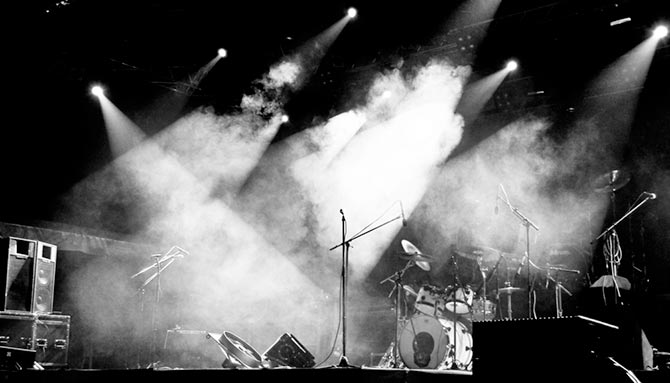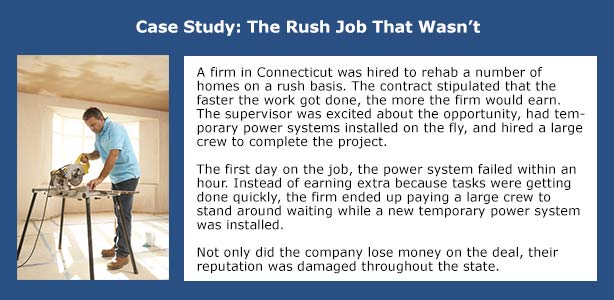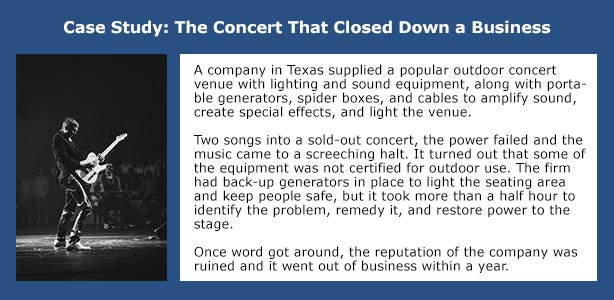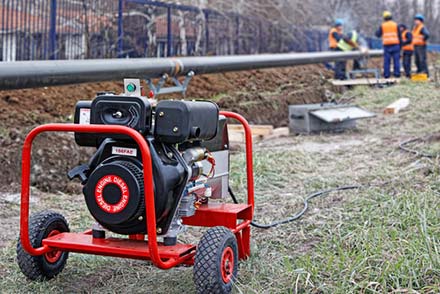
How to Avoid Portable Power Loss
A loss of portable power can be devastating for a business. It can lead to significant financial losses, reduced productivity, accidents, injuries, and damaged reputations.
The good news? It’s easy to avoid a portable power system failure. Here are 10 things you can do to ensure something like this never happens to you and your company.
1. Don’t use worn or damaged equipment or cables
One of the biggest causes of electrical power failures is using damaged equipment or frayed cables. Always take time to inspect your equipment and cables before you store them away and before using them. If you see any damage, make sure you label the item clearly and lock it away until it can be repaired. If repair is not possible, dispose of it carefully so no one uses it by mistake.
2. Always work with industrial grade equipment and cables
When in a rush, it can be tempting to cut corners and use whatever equipment is handy, including extension cords or cables that are not properly grounded. Make it a rule to always use professional-grade equipment and cabling rated for function, location, and type of use by a nationally recognized testing lab.
3. Ensure equipment and cables are rated for outdoor use
If you’re using a temporary power system outside or in a damp location, check that all the components are rated for outdoor use. Working with the wrong equipment in a damp setting is one of the leading causes of workplace electrical incidents.
4. Plan ahead and document everything
You may have years of experience setting up portable power systems. Despite your level of expertise, never install one without developing a plan for it and documenting everything you do.
The planning process provides an opportunity to identify flaws or inadequacies in the system that might otherwise go unnoticed. Plus, should something go wrong, a documented plan makes it easier to trace and identify possible issues.
5. Ground it
In addition to individual pieces of electrical equipment being grounded, the portable power system must be properly grounded as well. This should be done by connecting the neutral circuit conductor to a grounding electrode by using a grounding electrode conductor at the service.
6. Plan capacity based on maximum load projections
The electrical distribution system should be designed and installed to provide adequate capacity for the maximum load you expect. Plan ahead for increased lighting, power tools, and other equipment that could be needed later in the job.

7. Make sure all aspects of your system are compatible
Companies collect portable power equipment over a long period of time. Before setting up a new system, ensure all the components are compatible and designed to work together. If you have any doubts, don’t use the equipment before you talk to an expert.
8. Provide adequate circuit protection
All circuits should be protected by fuses or circuit breakers with a current rating no higher than that of the conductors. Inadequate circuit protection is a leading cause of portable power system failure.
Certain states have specific regulations on this issue. California has some of the strictest. Always make sure you check that you’re meeting your state’s codes.
9. Never skip an inspection
No matter how busy or rushed you are on the job, don’t cut out required or recommended system inspections. No matter how carefully you install a portable power setup, it’s easy to get something wrong. A second (or third) set of eyes can help identify errors. Also, you never know when someone on a worksite will make an unauthorized change. Regular periodic inspections can help find system alterations that could lead to accidents or system failures
10. Plan for the worst
No matter how careful you plan your portable electrical system, something could still go wrong. Always make sure you have a backup plan and equipment in place should something unexpected happen.
Remember: You can take steps to run your business perfectly, but we all know perfection isn’t possible. The success of a business is not determined by whether it gets everything right, it’s all about how it can effectively recover from challenges.
Do you have questions about setting up a “no fail” portable power system? Contact an expert in planning and installing systems for different industries, including construction and contracting, sound and lighting, mines, and more.
A professional can give you the guidance you need to purchase the right equipment and install it correctly. It’s the best thing you can do to ensure a portable power loss won’t impact your business in a negative way.

 CALL OR TEXT NOW 800-597-9311
CALL OR TEXT NOW 800-597-9311

Leave a comment